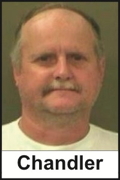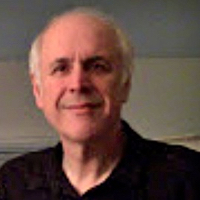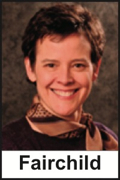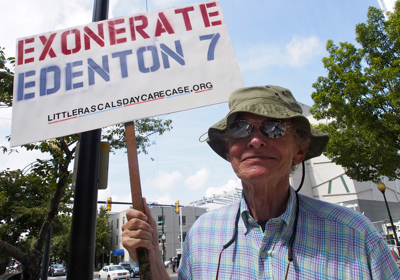Rascals case in brief
In the beginning, in 1989, more than 90 children at the Little Rascals Day Care Center in Edenton, North Carolina, accused a total of 20 adults with 429 instances of sexual abuse over a three-year period. It may have all begun with one parent’s complaint about punishment given her child.
Among the alleged perpetrators: the sheriff and mayor. But prosecutors would charge only Robin Byrum, Darlene Harris, Elizabeth “Betsy” Kelly, Robert “Bob” Kelly, Willard Scott Privott, Shelley Stone and Dawn Wilson – the Edenton 7.
Along with sodomy and beatings, allegations included a baby killed with a handgun, a child being hung upside down from a tree and being set on fire and countless other fantastic incidents involving spaceships, hot air balloons, pirate ships and trained sharks.
By the time prosecutors dropped the last charges in 1997, Little Rascals had become North Carolina’s longest and most costly criminal trial. Prosecutors kept defendants jailed in hopes at least one would turn against their supposed co-conspirators. Remarkably, none did. Another shameful record: Five defendants had to wait longer to face their accusers in court than anyone else in North Carolina history.
Between 1991 and 1997, Ofra Bikel produced three extraordinary episodes on the Little Rascals case for the PBS series “Frontline.” Although “Innocence Lost” did not deter prosecutors, it exposed their tactics and fostered nationwide skepticism and dismay.
With each passing year, the absurdity of the Little Rascals charges has become more obvious. But no admission of error has ever come from prosecutors, police, interviewers or parents. This site is devoted to the issues raised by this case.
On Facebook
Click for earlier Facebook posts archived on this site
Click to go to
Today’s random selection from the Little Rascals Day Care archives….
Click for earlier Facebook posts archived on this site
Click to go to
Today’s random selection from the Little Rascals Day Care archives….
A last chance at freedom – or the end of the road
 Feb. 15, 2012
Feb. 15, 2012
I asked Mark Montgomery for an update on Junior Chandler’s latest appeal of his two life sentences for child sexual abuse:
“There are two prongs to the appeal. First, I am asking the N.C. Supreme Court to simply do the right thing by Junior. The Court said in 2010 that expert testimony like that in Junior’s case is (and was) inadmissible. That being the case, it is fundamentally unfair for Junior to be facing the rest of his life in prison, when many defendants have been freed because this sort of testimony was used against them at trial.
“Second, Junior’s lawyer objected to the testimony but did not raise the issue on appeal. I argued in a motion in Superior Court that the lawyer was ineffective for abandoning the issue. The Superior Court judge denied the motion without a hearing. If the Supreme Court will not itself set aside Junior’s convictions, it should at least require a hearing on trial counsel’s conduct.”
This is how the process works: “Petitions such as Junior’s go to one of the six associate justices. He or she decides what should be done and then presents the case to the court as a whole in a monthly (sort of) closed door meeting. The justices then vote on whether to grant the petition. If the Court grants the petition, it usually requires full briefs from both parties, but may decide the case of the basis of the petition and the State’s response alone.
“If it denies the petition, that’s the end of the road.”
The court could respond as early as April 13, according to this chart of petitions allowed and denied.
APSAC’s child-protection record doesn’t inspire confidence

youtube.com
Richard Wexler
Sept. 28, 2016
“The American Professional Society on the Abuse of Children [is] presenting a ‘special issue’ of one of its publications devoted to [Differential response] – or rather, devoted to bashing DR….
“APSAC’s track record for getting child welfare issues right is less than distinguished. As Debbie Nathan and Michael Snedeker explain in Satan’s Silence, APSAC was formed in the 1980s largely by well-meaning ‘professionals’ who promoted claims of a supposed epidemic of mass molestation and satanic ritual abuse in day care centers.
“ ‘From its inception,’ Nathan and Snedeker write, ‘APSAC’s leadership roster was a veritable directory of ritual-abuse architects.’ Kee MacFarlane, who led the questioning of children in the notorious McMartin Preschool case, served on APSAC’s board – and received the group’s Outstanding Professional award – a decade after McMartin. And in 1997, three years after writing an article promoting the idea that there really were secret tunnels under the McMartin Preschool, Roland Summit, another former board member, received the group’s Lifetime Achievement award.”
– From “Opposition to Differential Response Dealt Heavy Blow” by Richard Wexler in the Chronicle of Social Change (Sept. 24)
Differential response – a less adversarial, more collaborative approach to reports of child abuse and neglect – isn’t a subject I’m well-informed on. But Wexler’s characterization of APSAC’s culpability for the day-care panic can’t be disputed.
Next: Has APSAC recanted about ‘satanic ritual abuse’?
![]()
‘Long history of panic’ extended to day-care cases
 Feb. 6, 2013
Feb. 6, 2013
“Panic provides a rationale for action, sometimes overreaction or even manipulation. As such, it is the subject of heated accusation and denial that can create a swirl of confusion and frustration.
“Nonetheless, some lessons stand out in the long history of panic. There is no basis for imagining that the frenzied 19th century reactions to disease are a slumbering beast waiting to be roused. Too much government infrastructure and information stand between populations and unfettered panic….”
– From “A Brief History of Panic” by Amy L. Fairchild, David Merritt Johns and Kavita Sivara Makrishnan, public health researchers at Columbia University (the New York Times, January 28, 2013)
“Frenzied…. reactions” to disease epidemics may have subsided since the 19th century, but they were crucial in animating the day-care ritual-abuse prosecutions of the 1980s and ’90s. And “government infrastructure” – that is, district attorneys’ offices – wasn’t a deterrent but an accelerant!
Predigital advocacy for the Edenton Seven

Author outside Charlotte Convention Center.
Sept. 5, 2012
Almost 68 years old I am, but until this week I had never hoisted a picket sign. Why now?
Within walking distance of my house, thousands of delegates and reporters are attending the Democratic National Convention. A moment of attention perhaps for littlerascalsdaycarecase.org?
Most of those striding along the sidewalk in front of the Convention Center barely glanced at my carefully stenciled placard, but occasionally someone asked about the case and accepted a card. Jim Morrill of the Charlotte Observer even gave me a mention on his blog.
What I have learned: As a media magnet, I’m no match for a white-bearded guy bearing a six-foot cross (on rollers) and two wooden tablets.











0 CommentsComment on Facebook